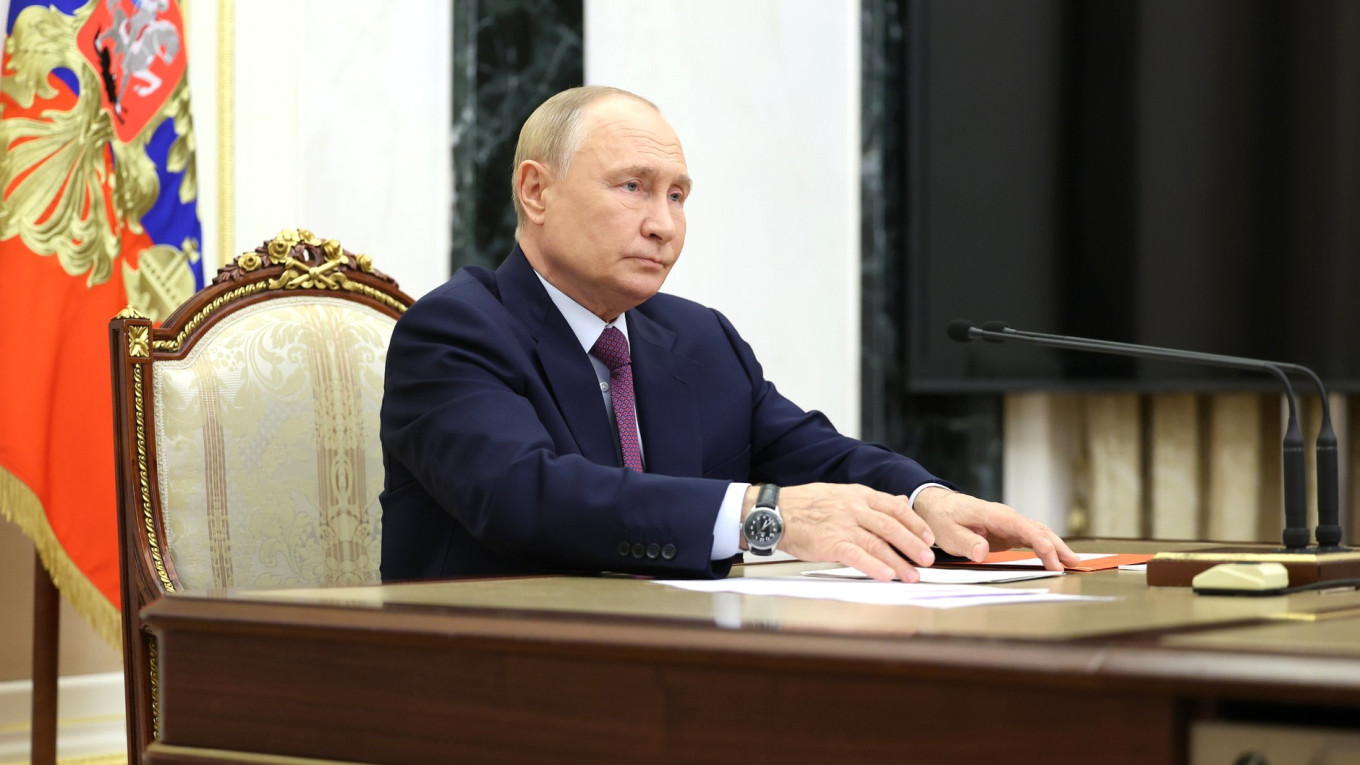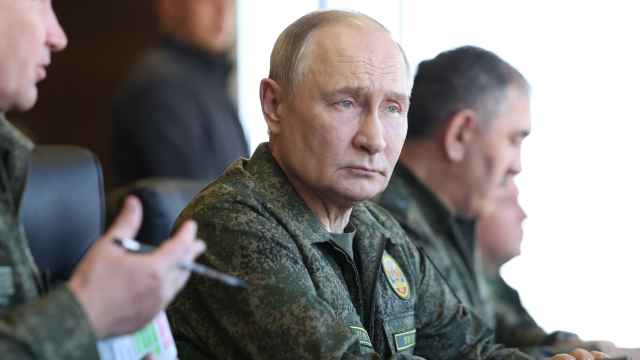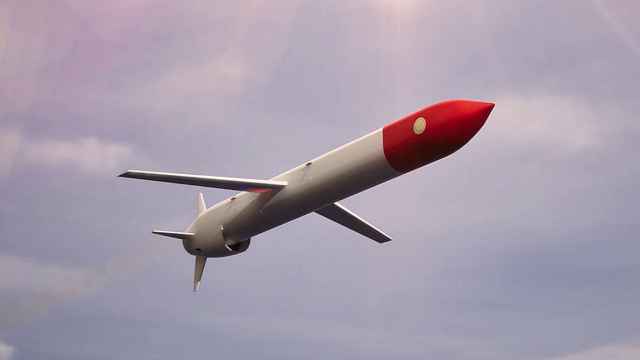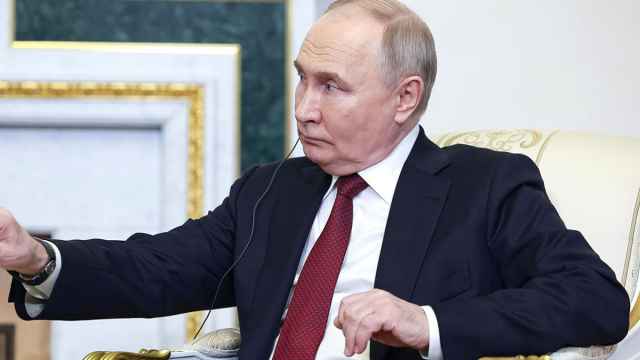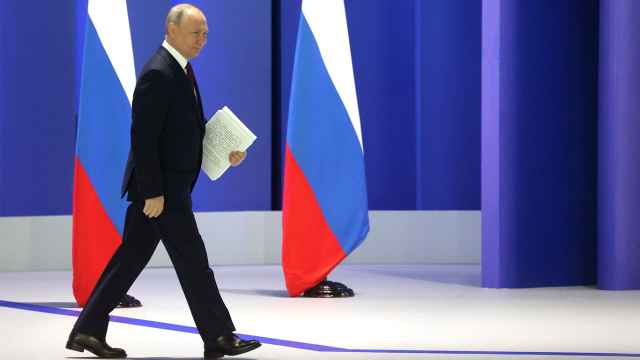Russian President Vladimir Putin on Wednesday announced plans to broaden Russia's rules on the use of its nuclear weaponry, allowing it to unleash a nuclear response in the event of a "massive" air attack.
Under the proposed rules, Russia would also consider any attack by a non-nuclear country supported by a nuclear power as a joint attack by both.
Putin said it was necessary to adapt to emerging threats, and while he did not directly refer to Ukraine, the proposed measures appeared linked to Moscow's offensive launched in February 2022.
The changes, which Putin himself has the power to approve, come as Ukraine is seeking permission from Western allies to use long-range precision weaponry to strike targets deep inside Russia — so far to no avail.
In a televised meeting with high-level officials, Putin detailed the proposed changes to the country's nuclear doctrine: the "utmost measure of protection of the country's sovereignty."
"We see the modern military and political situation is dynamically changing and we must take this into consideration," Putin said, citing "the emergence of new sources of military threats and risks for Russia and our allies."
Among the new measures, "it is proposed to consider aggression against Russia by any non-nuclear state" when this is carried out "with the participation or support of a nuclear power" as "their joint attack on Russia," Putin said.
This would seemingly apply to Ukraine, a non-nuclear state that receives military support from the United States and other nuclear-armed countries.
Putin said that proposed changes "clearly set the conditions for Russia to transition to using nuclear weapons."
"We will consider such a possibility once we receive reliable information about a massive launch of air and space attack weapons and their crossing our state border," the president added.
"I mean airplanes of strategic and tactical aviation, cruise missiles, drones, hypersonic and other aircraft," Putin said.
The president said the proposed changes also meant "we reserve the right to use nuclear weapons in case of aggression against Russia and Belarus," Moscow's close ally.
'Critical threat'
He added that this included a situation in which another state "using conventional weapons, creates a critical threat to our sovereignty."
The president said that Russia's nuclear weapons were "the most important guarantee of security of our state and its citizens."
"It's important to predict how the situation will develop and accordingly adapt the clauses of the document on strategic planning to current realities," Putin said.
The proposed new doctrine has been prepared as a draft, while Putin needs to approve the text for it to enter force, TASS state news agency reported.
It was the first time that Putin had held such a meeting in public, TASS reported.
Only the president's opening remarks to officials seated around a long table were aired on television.
Putin said in his speech that such meetings on nuclear deterrence were scheduled twice a year.
The participants included former president Dmitry Medvedev, now deputy head of Putin's Security Council, as well as the defense and finance ministers and the heads of the FSB security service and SVR foreign intelligence service.
A Message from The Moscow Times:
Dear readers,
We are facing unprecedented challenges. Russia's Prosecutor General's Office has designated The Moscow Times as an "undesirable" organization, criminalizing our work and putting our staff at risk of prosecution. This follows our earlier unjust labeling as a "foreign agent."
These actions are direct attempts to silence independent journalism in Russia. The authorities claim our work "discredits the decisions of the Russian leadership." We see things differently: we strive to provide accurate, unbiased reporting on Russia.
We, the journalists of The Moscow Times, refuse to be silenced. But to continue our work, we need your help.
Your support, no matter how small, makes a world of difference. If you can, please support us monthly starting from just $2. It's quick to set up, and every contribution makes a significant impact.
By supporting The Moscow Times, you're defending open, independent journalism in the face of repression. Thank you for standing with us.
Remind me later.


